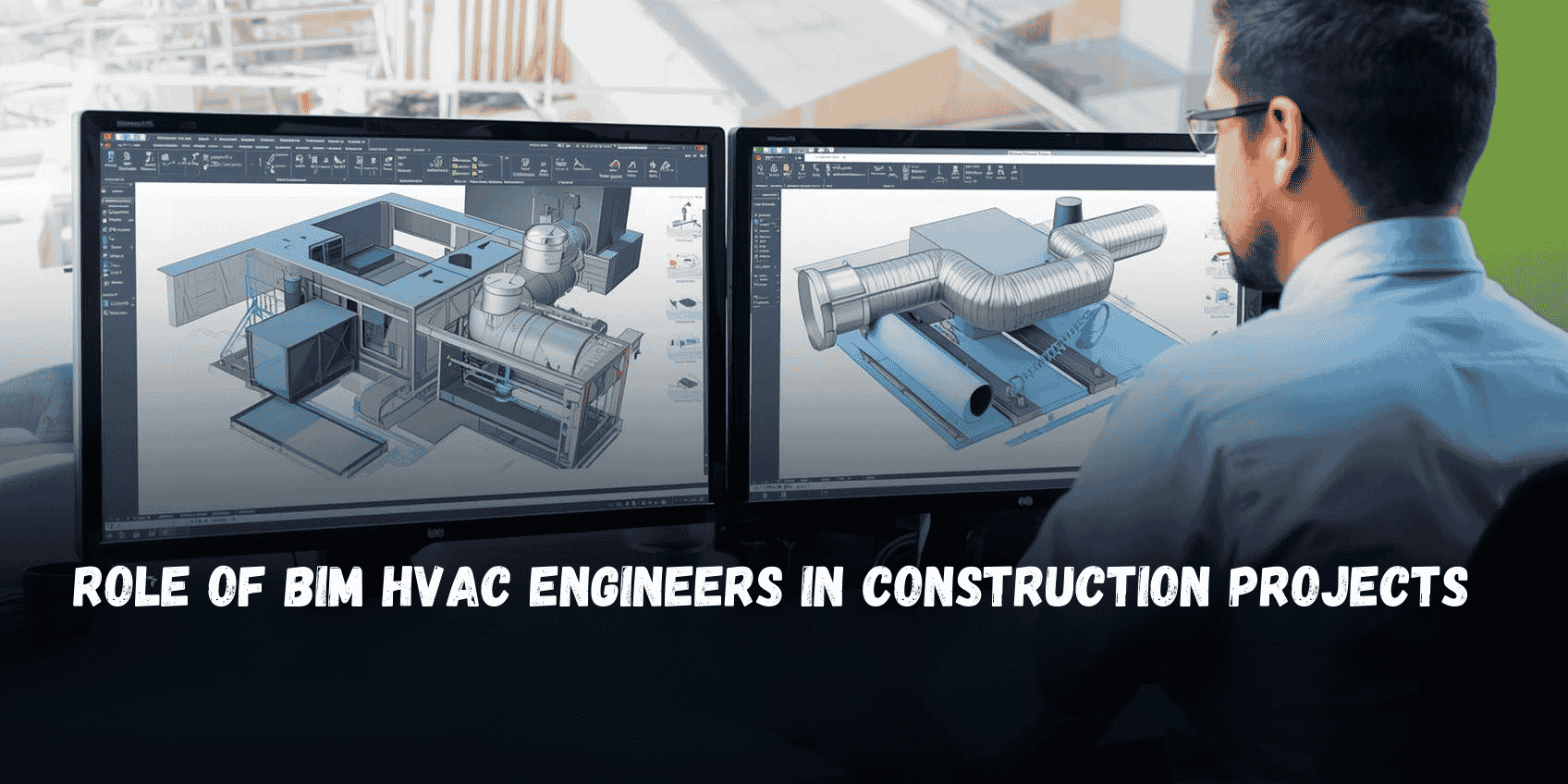.png)
Modern construction projects demand precise coordination of mechanical, electrical, and plumbing systems. Professionals aiming to enhance their technical expertise can benefit from a structured MEP course in USA, which provides practical knowledge, real-world project applications, and flexible learning options. These programs support engineers in mastering system design and integration effectively.
For those seeking a deeper understanding, learning what MEP engineering is helps clarify system functions, efficiency strategies, and design principles. Online training introduces participants to critical tools and methodologies, enabling them to apply knowledge to complex projects. This approach strengthens technical skills and decision-making, preparing professionals for advanced roles in building system management.
Why is Now the Best Time to Invest in an MEP Course in the USA?
The U.S. construction industry is experiencing rapid growth, with increasing reliance on efficient mechanical, electrical, and plumbing systems. This trend has created strong demand for qualified professionals who can handle modern building challenges. Enrolling in an MEP course now ensures engineers develop the technical expertise needed to meet current standards and remain competitive in evolving projects.
Rising salaries reflect this demand, with the average MEP engineer salary in the USA reaching $101,752. Structured training provides practical skills in system design, coordination, and compliance, enabling professionals to take on higher-level responsibilities. By investing in an MEP course today, learners gain the advantage of current knowledge and prepare for long-term career advancement in the sector.
How can MEP Training Fast-Track Your Career Growth and Salary Potential?

Engineers who undergo structured MEP training develop the skills to plan, coordinate, and optimize mechanical, electrical, and plumbing systems efficiently. This knowledge helps them make informed decisions, manage complex workflows, and understand practical design challenges. Learning what MEP is in construction in the process provides insight into system efficiency and compliance, preparing professionals for greater responsibilities in real-world projects.
Selecting a program with the right balance of content, schedule, and MEP course duration and fees ensures that learners can gain expertise without disrupting ongoing work commitments. Applying structured learning alongside hands-on practice improves technical judgment, strengthens problem-solving capabilities, and positions professionals for leadership roles, enabling steady career growth in the US construction and engineering sector.
Also Read: BIM for MEP: A Complete Guide 2026
Which Online MEP Courses Deliver the Highest Value for Professionals?
As the demand for skilled MEP professionals continues to rise, choosing the right program can make a significant difference. The following table highlights five well-regarded MEP course online with certificate options in the USA for 2026, each designed to provide practical skills and deepen expertise in mechanical, electrical, and plumbing systems.
|
List of Courses |
Duration |
Eligibility |
Certification Obtained |
|
7 months |
Bachelor's in Engineering |
Autodesk Certification, Novatr Program Certificate |
|
|
Revit MEP Certified Professional |
6 month |
Basic Revit knowledge |
Certificate of Completion |
|
Fundamentals of MEP for Buildings |
20 hours |
Open to all professionals |
VDCI Program Certificate |
|
Autodesk Revit 2026: Fundamentals for MEP |
4 days |
Basic Revit knowledge |
- |
|
Introduction to MEP Construction Management |
Self-paced |
Open to all professionals |
Certificate of Completion |
How Do Top-Performing Engineers and Designers Benefit From Continuous MEP Upskilling?

Top-performing professionals understand that staying updated in MEP engineering is essential for maintaining efficiency, precision, and competitiveness in complex projects. Continuous upskilling ensures engineers and designers remain proficient in the latest tools, technologies, and industry standards, enabling them to deliver higher-quality results and make informed decisions across mechanical, electrical, and plumbing systems.
Key benefits of ongoing MEP training include:
-
Enhanced Collaboration: Upskilling improves coordination with architects, contractors, and consultants, leading to seamless integration of building systems.
-
Greater Design Accuracy: Regular training reduces errors in planning and execution, helping projects stay on time and within scope.
-
Regulatory Compliance: Updated knowledge ensures alignment with changing codes, safety requirements, and industry standards.
-
Stronger Leadership Skills: Continuous learning equips professionals to manage teams, delegate effectively, and oversee complex projects.
-
Advanced Problem-Solving: Exposure to new techniques sharpens analytical thinking and enables faster resolution of design challenges.
-
Future-Ready Expertise: Ongoing development keeps engineers competitive by adapting to emerging technologies and industry innovations.
What Should You Look For to Ensure the MEP Course You Choose Delivers Real Results?

Choosing the right MEP training program is crucial for building practical skills and advancing technical knowledge. The best online MEP courses for beginners in the USA provide structured learning that connects theory with real-world applications, helping professionals understand complex building systems, apply engineering principles effectively, and gain measurable expertise that supports long-term career growth in the construction and engineering sector.
Key factors to consider include:
-
Comprehensive Curriculum: A well-structured course should cover all core areas of mechanical, electrical, and plumbing systems, supported by practical exercises for better retention.
-
Expert Instructors: Learning from professionals with proven MEP engineering experience ensures guidance that connects theory with real project applications.
-
Flexible Learning Structure: Programs offering adaptable schedules and clear details on MEP course fees make training accessible without disrupting professional commitments.
-
Access to Modern Tools: Exposure to current software and simulation platforms helps learners gain hands-on experience relevant to today’s industry standards.
-
Recognized Certification: Credentials backed by respected institutions or industry bodies validate knowledge and enhance credibility in the job market.
-
Career-Focused Outcomes: The most effective courses emphasize real improvements in design skills, coordination, and project efficiency, preparing learners for advancement.
Conclusion
The growing complexity of building systems highlights the importance of structured learning pathways for engineers and designers. By selecting programs that combine practical application with modern software integration, professionals can stay ahead in a competitive industry. Choosing an online BIM MEP training in the USA ensures both relevance and adaptability, equipping learners with skills that match evolving project demands.
For those seeking a proven path, Novatr’s BIM Course for MEP Engineers offers a comprehensive approach to mastering system coordination and design. Exploring this option through our resource page helps readers make informed choices about training that leads to real-world results. Thoughtfully chosen courses not only enhance expertise but also support long-term career progression across MEP engineering roles.
Also Read: Boost Your MEP Engineering Career with BIM Mastery
FAQs
1. What is covered in a typical MEP training course?
An MEP training course usually covers the fundamentals of mechanical, electrical, and plumbing systems, combined with design principles and coordination techniques that prepare engineers for practical project execution.
2. How does a Revit MEP course support professional growth?
A Revit MEP course trains engineers to use advanced modeling tools for system design and simulation, improving project accuracy, collaboration, and efficiency in real-world applications.
3. What is MEP in construction?
In construction, MEP refers to the integration of mechanical, electrical, and plumbing systems, which are essential for creating safe, functional, and energy-efficient buildings.
4. Who can benefit most from an MEP design course?
An MEP design course benefits engineers, architects, and construction managers who want to strengthen their technical expertise. It is especially useful for professionals aiming to manage multidisciplinary projects where accurate coordination is critical. By learning system design and integration, they can take on leadership roles in project delivery.
5. Why is continuous learning important for an MEP engineer?
Ongoing upskilling keeps an MEP engineer updated on new technologies and industry standards, ensuring they can manage complex projects with efficiency and remain competitive in the job market.
Was this content helpful to you



.jpg)

.png)
.png)
